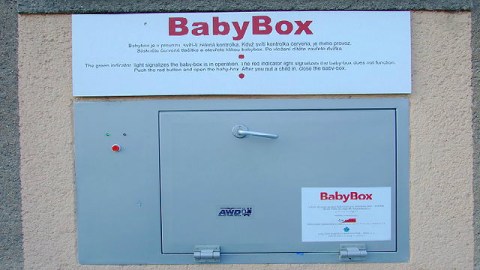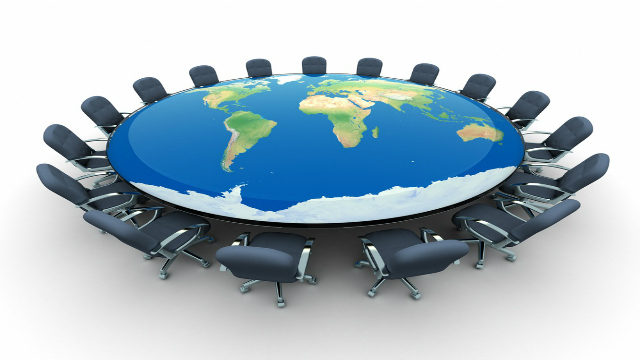Why It’s Moral to Use “Baby Boxes”

Over the last decade, Europe has a seen a rise in the use of so-called ‘Baby Boxes’. As The Telegraph reports: “Often found in the walls of hospitals the boxes offer a safe place where parents can place an unwanted child, and have becoming increasingly popular in European countries such as the Czech Republic, Germany and Latvia.” The parent is assured that the child will be safe and looked after, once s/he is deposited.
For example, in Berlin, by Waldfriede Hospital, “at the end of [a] path, there is a stainless steel hatch with a handle. Pull that hatch open, and there are neatly folded blankets for a baby. The warmth is safe and reassuring. There is a letter, too, telling you who to call if you change your mind.” The letter reads:
“Dear Mother of a foundling,
We realise that taking the step of giving away your child wasn’t easy for you. Please be assured that we will take loving care of your baby to the best of our ability and as such will give him/her a good start in life. Also, the baby should be given a chance to live! Should you change your mind and want your baby back, you can come back to us with full trust. We will gladly help you and are pleased when mother and child are able to be together. Even if you don’t, we will still help you with advice. Rest assured that you don’t need to worry about the police looking for you. Call us. We are there for you.
Remember, one day your child will want to know at the very least the name of his/her mother. If you wish to leave this vital piece of information, we’ll be glad to help.”
The advantages are apparent: if the child is to abandoned, the box means she won’t starve or die of hypothermia, as many do who are abandoned in dustbins, on roads, and so on. It means parents won’t have to resort to drowning or other brutal measures of infanticide.
As readers of this blog know, I’m not against infanticide, in general – indeed, not even for infants with no clear medical problems, since I see no significant moral difference between foetuses and infants. So because I think it is moral for a woman to have abortions (for whatever reason she wants, including non-medical), I think it’s moral for women to have so-called “post-birth” abortions, too (though here, it’s not clear that the mother has absolute decision on killing the infant as she does in normal abortions, since the child is no longer inside, using her body). I do think, if possible, all effort should be on adoption, but where that isn’t possible, I see no reason painless, humane ending of the infant can’t be an option, following the parents’ expressed wishes.
The “Baby Boxes” therefore seem to me a good option. The BBC report: “At the box in Berlin… there was safety backed by the full facilities of a maternity unit. Once a baby is in the hatch, an alarm rings and medical staff come, even as the mother walks away unseen. The baby is cared for in the hospital and then fostered before going into the legal system for adoption. In the early period, mothers can return and retrieve their child, but later they can’t – adoption is final.”
Of course we come to complications if parents decide they want the child back. There is a window period, which has helped many mothers who needed a chance to put their lives in order so that a child could be looked after properly. Of course, once the window-period is passed and the child is adopted, the parents have no claim. That seems to me to be a reasonable response, despite it upsetting many of the biological parents.
Further problems include whether the hatch is upholding women’s rights. This comes up because fathers and even pimps can use the box to continue the use of a woman’s body. This is problematic, since this is usually a conclusion to some kind of trauma, claims psychologist Kevin Browne.
However, it’s not entirely clear how or why the box makes these already existing problems worse. If a woman is in the horrible situation of being controlled by her pimp or boyfriend or father, then the problem isn’t perpetuated or made worse by the “baby box”. One need only ask what would the solution have been had the box not been there: brutal infanticide, death from hypothermia or malnourishment (assuming the child is already born)? Of course there would be other avenues, such as foster care or adoption homes, but given the kinds of situations women like this are in, such clean and reasonable options are precisely passed over! To put it rather bluntly: what pimp, on finding a baby, is going to make efforts to find the child a home?
Opponents of abortion make the same kind of argument: because it’s possible to use abortion facilities or pills, especially free ones, it makes it easier for women to simply get rid of their pregnancies, due to pressure from dominating figures. This means their bodies are “free” again. But we understand that abortion – even forced – is not the (major) problem: her terrible life conditions are. (Furthermore, it’s probably best that children are not raised in such terrible conditions anyway).
The UN is also opposed to it: “The UN Committee on the Rights of the Child has said the boxes contravene the state’s “duty to respect the child’s right to maintain personal relations with his or her parent”, and violate the child’s right to a name and nationality. The committee also dismissed claims that the boxes save lives.” I think the more important question is the empirical one: does it save lives? According to, for example, a commission in the Czech Republic it does for them. I’m uncertain where the UN obtained its evidence, as I can find no link. Nonetheless, this is an empirical question. The less important one is the idiotic “child’s right to maintain personal relations with his or her [biological] parent”.
The only reason I think this matters has to do with medical records and genetics. Otherwise, we’re giving in to the stupid notion that genetics automatically means something ‘special’: it doesn’t. Parents don’t deserve their child’s love automatically, unless they get it the same way we get anyone’s love: through actions that warrant it. I see no reason why such a strange “right”, regardless of legality, ought to trump what according to some estimates saves lives and indeed seems to me a very moral framework to help those who require it.
Image Credit: WikiPedia





